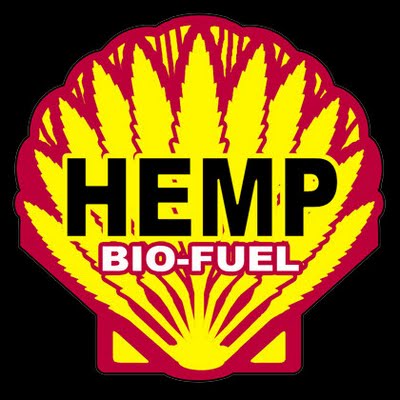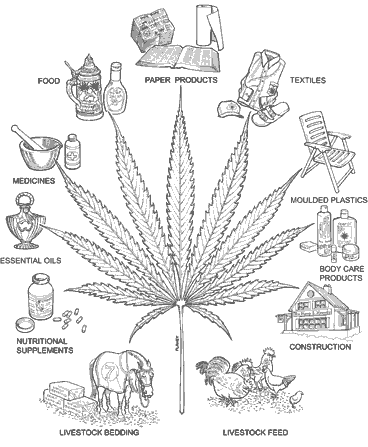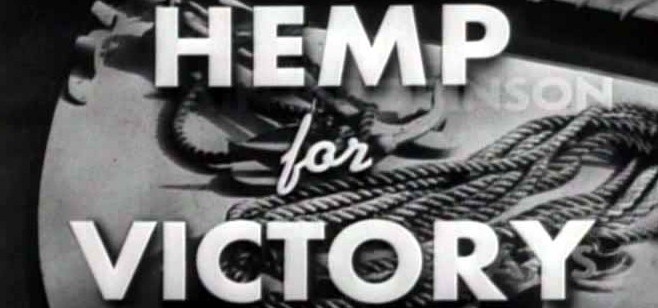
INDUSTRIAL HEMP NOW LEGAL FOR ALL 50 UNITED STATES! 2014′ FARM BILL: 9 States Legal For Citizens! $1 Dollar Per Gallon Ethanol Now Possible! Let The Good Times Roll! True Democracy party
Admin
INDUSTRIAL HEMP NOW LEGAL FOR ALL 50 UNITED STATES! ’2014′ FARM BILL: 9 States Legal For Citizens! “$1 Dollar Per Gallon Ethanol Now Possible!” Let The Good Times Roll! – True Democracy party
The 2014 Farm Bill passed by Congress, over very strong DEA/FDA objections, allows all U.S. States Agriculture Departments to grow Industrial Hemp, without Restrictions.
This is Great News, since this opens the door for Jobs, and Cheap Fuel as well as Guaranteed Markets to sell their product and Guaranteed Products that can be made. Refer to the picture below.
Right now North Carolina is chopping down their forests like this were South America. They are doing it to supply Britain with ‘Bio-Mass Fuel Pellets’ to comply with new European Renewable Energy Laws. A Guaranteed Market!
Wouldn’t it be better to grow Industrial Hemp for that purpose, instead of Deforestation!
But States now have the ability to start their own State Renewable Energy Industries and put their citizens to work, Job Creation, and bring in extra money at the same time as helping the U.S. Economy and their citizens, by providing Low-Cost, Green-House Gas Neutral, Bio-Mass Ethanol Fuel.
Most studies say this can be done for 50 cents per Gallon. The States could easily sell it for $1 per gallon. They are getting a profit of .50 Cents per Gallon sold, and no citizen in their right mind, would mind paying $1 dollar per gallon and letting the State pocket .50 cents in Profit. We would be OVERJOYED!
This is now all possible. But we will have to organize a campaign in every State and the Capital. With this, we will need some help.
The True Democracy Party Of America, along with the U.S. Congress have planted the Seed, so to speak. But they can’t act without further coaching, and we can’t act at all further, without help from the American Citizens.
Don’t Email us and ask, “What can we Do to help?
Think of what needs to be done, or what you can do, and just do it! Contact us, and we will try to help you.
National Conference of State Legislatures
Industrial hemp refers to many types of Cannabis plants that contain low levels of the psychoactive chemical tetrahydrocannabinol (THC) and can be used to make a variety of products including textiles, plastics, fuel and food. However, the Federal Controlled Substances Act categorizes any product that contains THC, including industrial hemp, as a Schedule I drug.
The final 2014 Farm Bill agreement included a provision that would allow institutions of higher education and state departments of agriculture to grow or cultivate industrial hemp.
It also requires that the sites used by universities and agriculture department be certified by—and registered with—their state department of agriculture. This provision will allow universities and agricultural departments to study industrial hemp for its possible future use as a commercial product.
Nine states—California, Colorado, Kentucky, Maine, Montana, North Dakota, Oregon, Vermont and West Virginia—have laws to promote the growth and marketing of industrial hemp. A tenth state—Hawaii—passed legislation in 1999 authorizing privately-funded industrial hemp research that was conducted under a U.S. Drug Enforcement Agency permit until 2003.
Current state policies include:
* defining industrial hemp based on the percentage of tetrahydrocannabinol it contains.
* authorizing the growing and possessing of industrial hemp.
* requiring state licensing of industrial hemp growers.
* promoting research and development of markets for industrial hemp.
* excluding industrial hemp from the definition of controlled substances under state law.
* establishing a defense to criminal prosecution under drug possession or cultivation.
As of February 26, 2014, 63 bills addressing Industrial Hemp have been introduced in 28 State Legislatures.
State Statutes:
California
CA FOOD & AG §81000-81010
Requires industrial hemp growers to be registered with the state.
Prohibits the possession of resin, flowering tops or leaves removed from the hemp plant.
Establishes registration and renewal fees for commercial growers of industrial hemp.
Organizes a five year review of industrial hemp’s economic impact.
While legislation adding this section was enacted in 2013, the law specifies that its provisions do not become operative unless authorized by federal law.
Colorado:
CRS § 25-18.7-101 to -105
Permits growing and possessing industrial hemp.
Establishes industrial hemp remediation pilot program “to determine how soils and water may be made more pristine and healthy by phytoremediation, removal of contaminants, and rejuvenation through the growth of industrial hemp.”
Kentucky:
KRS § 260.850-.869
Establishes research on industrial hemp and industrial hemp products.
“Industrial hemp means all parts and varieties of the plant cannabis sativa, cultivated or possessed by a licensed grower, whether growing or not, that contain a tetrahydrocannabinol concentration of one percent (1%) or less by weight, except that the THC concentration limit of one percent (1%) may be exceeded for licensed industrial hemp seed research.
“The Department of Agriculture shall promote the research and development of markets for Kentucky industrial hemp and hemp products after the selection and establishment of the industrial hemp research program and the Industrial Hemp Commission…”
Includes language that “Kentucky shall adopt the federal rules and regulations that are currently enacted regarding industrial hemp and any subsequent changes thereto.”
On February 19, 2014, Kentucky announced five pilot hemp projects that would be used across the state, including one project that would research whether industrial hemp could be used to remediate tainted soil.
Maine:
7 M.R.S.A. § 2231
Requires industrial hemp growers be licensed by the state.
Permits a person to “plant, grow, harvest, possess, process, sell and buy industrial hemp” if that person holds a license.
Prohibits the state from issuing a license unless “The United States Congress excludes industrial hemp from the definition of “marihuana” for the purpose of the Controlled Substances Act, 21 United States Code, Section 802(16); or…the United States Department of Justice, Drug Enforcement Administration takes affirmative steps towards issuing a permit under 21 United States Code, Chapter 13, Subchapter 1, Part C to a person holding a license issued by a state to grow industrial hemp.”
17-A M.R.S. § 1101-1117
Under criminal code, it is an affirmative defense to drug trafficking, furnishing, cultivation or possession charges if the substance so used is industrial hemp.
“Industrial hemp means any variety of Cannabis sativa L. with a delta-9- tetrahydrocannabinol concentration that does not exceed 0.3% on a dry weight basis and that is grown under a federal permit in compliance with the conditions of that permit.”
Montana:
Mont. Code Anno., § 80-18-101 to 80-18-111
States that industrial hemp that does not contain more than 0.3% tetrahydrocannabinol is an agricultural product.
“…an individual in this state may plant, grow, harvest, possess, process, sell, or buy industrial hemp if the industrial hemp does not contain more than 0.3% tetrahydrocannabinol.”
Requires industrial hemp growers be licensed by the state.
Creates an affirmative defense to prosecution under criminal code for marijuana possession or cultivation.
North Dakota:
N.D. Cent. Code, § 4-41-01 to 4-41-03 (2009)
States that industrial hemp that does not contain more than 0.3% is considered an oilseed.
“…any person in this state may plant, grow, harvest, possess, process, sell, and buy industrial hemp (cannabis sativa l.) having no more than three-tenths of one percent tetrahydrocannabinol.”
Requires industrial hemp growers be licensed by the state.
“North Dakota state university and any other person licensed under this chapter may import and resell industrial hemp seed that has been certified as having no more than three-tenths of one percent tetrahydrocannabinol.”
Oregon:
O.R.S. § 475.005
Excludes industrial hemp from definition of “controlled substance.”
O.R.S. § 571.300 to .315
Requires industrial hemp growers be licensed by the state.
Authorizes “industrial hemp production and possession, and commerce in industrial hemp commodities and products.”
Vermont:
6 V.S.A. § 561 to 566
“Industrial hemp means varieties of the plant cannabis sativa having no more than 0.3 percent tetrahydrocannabinol, whether growing or not, that are cultivated or possessed by a licensed grower in compliance with this chapter.”
“Industrial hemp is an agricultural product which may be grown, produced, possessed, and commercially traded in Vermont…”
Requires industrial hemp growers to be licensed by the state.
West Virginia:
W. Va. Code § 19-12E-1 to 19-12E-9
“Industrial hemp that has not more than one percent tetrahydrocannabinol is considered an agricultural crop in this state if grown for…purposes authorized…”
Requires industrial hemp growers be licensed by the state.
Creates a complete defense to prosecution under criminal code for marijuana possession or cultivation.
SOURCE: http://www.ncsl.org/research/agriculture-and-rural-development/state-industrial-hemp-statutes.aspx
*
Hemp was called a billion dollar crop in 1930′s. Hemp can produce over 30,000 different products; from paper, plastic, fuel, clothing, to FOOD. Why is this super plant illegal to grow in the US? Conspiracy. Get access to our unique hemp products and learn how you can make money from home sharing this story
*
Hemp for Victory – Entire Film – US Government asks farmers to grow it
Produced by the US Government in 1942…Interesting to learn that Dupont Chemical funded the anti- hemp / marijuana effort.
This is because they had patents on new synthetic fibers and Hemp had a new machine that would put them out of business if hemp were to be used for clothes. Dupont also sold – and still does many of the chemicals to wood pulp producers… so we continue to cut down forests… when Hemp could save millions of trees, be used as an alternative bio fuel and the US could easily grow enough hemp to eliminate the need for oil… so Big oil does not want hemp legal either. Neither do the drug companies… they can’t patent it.
They would rather keep selling you their drugs. By keeping it illegal the lawyers, courts etc… also make a buck. You can only get high from the female flower – nobody has ever died from smoking a joint. Of course the alcohol and tobacco companies would prefer to keep their monopoly as well. So we have all the BIG Corporate players… against legalizing it. Yet if it were legalized – we would solve many issues and have a multi billion dollar hemp economy as it can be used for 1000′s of products.
A few other good films to watch are run from the cure & hemp conspiracy – Google it!
*
Published on Mar 4, 2014
The stat sheet on hemp sounds almost too good to be true: its fibers are among the planet’s strongest, its seed oil the most nutritious, and its potential as an energy source vast and untapped. In this video see just a few real world applications already in place.
*




